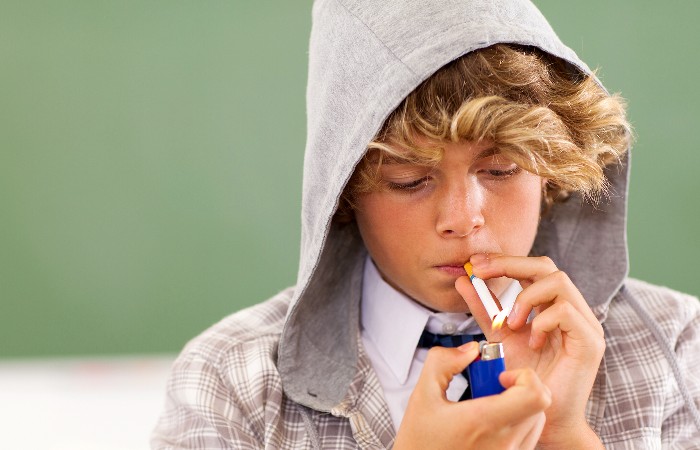Smoking and vaping levels among school kids unchanged between 2021 and 2023
In News
Follow this topic
Bookmark
Record learning outcomes
Levels of smoking and vaping among secondary school children in England largely remained unchanged between 2021 and 2023 although the number of those who said they had taken illicit drugs fell during that period, according to the latest official statistics.
The latest ‘Smoking, Drinking and Drug Use among Young People in England’ report by NHS Digital revealed smoking prevalence among 11 to 15-year-olds was “similar” to 2021 when 12 per cent were found to have smoked. In 2023, it was 11 per cent.
The number of pupils who were current and regular smokers also remained unchanged at three per cent and one per cent respectively.
One in seven secondary schools in England was randomly chosen to take part in the study.
E-cigarette use also remained the same between 2021 and 2023 at nine per cent. One in four pupils said they had tried vaping at least once in the 2023 survey.
Of those who had tried vaping, 89 per cent said they had never regularly smoked cigarettes. Six per cent said they started vaping before smoking cigarettes and five per cent reported smoking cigarettes before vaping.
Prevalence of alcohol consumption increased with age, from 15 per cent of 11-year-olds to 62 per cent of 15-year-olds. Five per cent of all pupils said they usually drank at least once a week, which was similar to six per cent in 2021.
The proportion of pupils who drank at least once a week also increased with age, from one per cent of 11 and 12-year-olds to 11 per cent of 15-year-olds.
There was a fall in the prevalence of illicit drug use, with13 per cent of pupils saying they had taken drugs in 2023 compared with 18 per cent in 2021. Nine per cent said they had taken drugs in the last year and five per cent in the last month.
Ten per cent of pupils said they felt lonely “often or always” while 18 per cent said “they often had no-one to talk to.” Fifteen per cent said they “often felt left out.”

